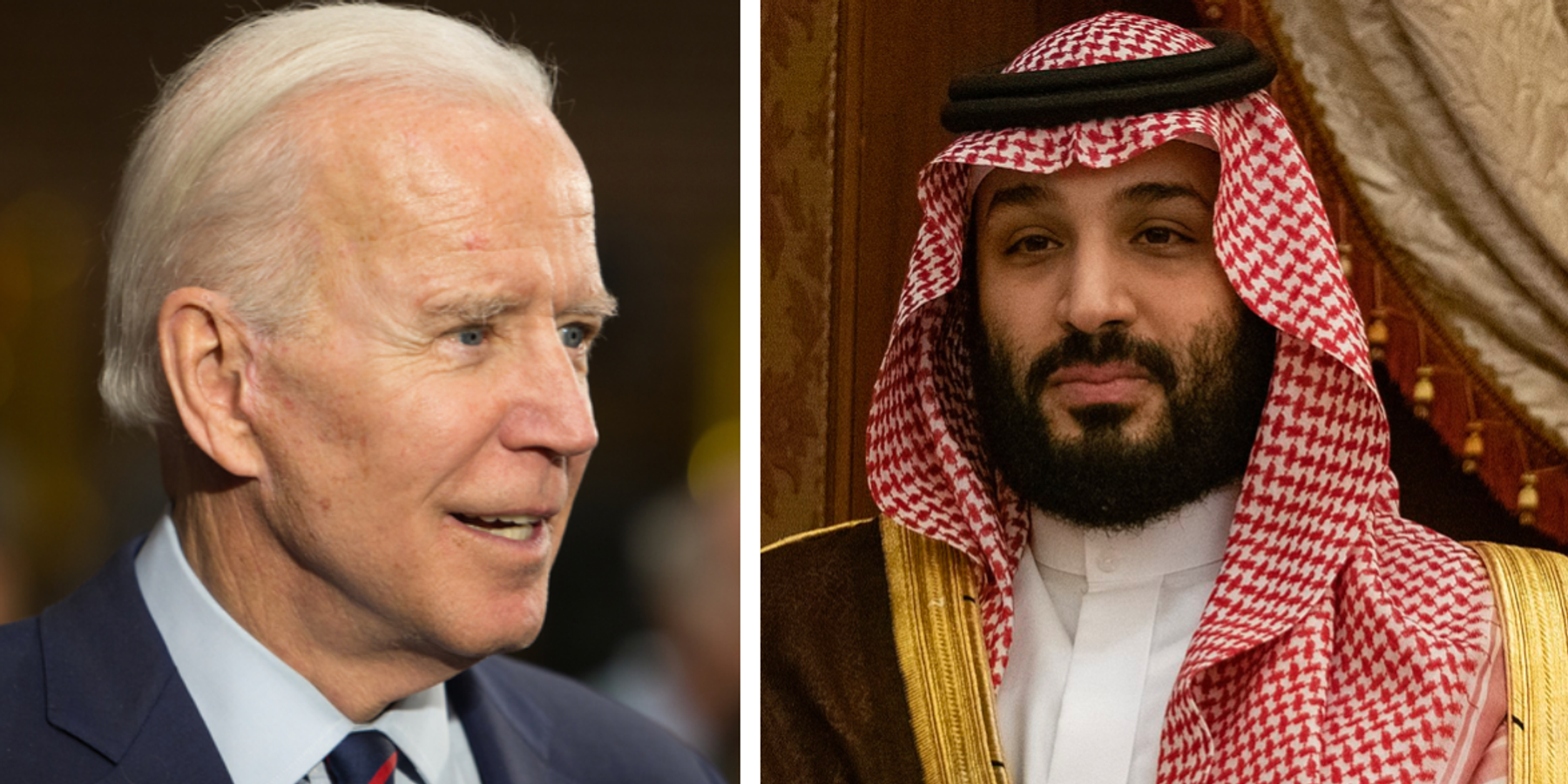In a televised speech today, Saudi Crown Prince Mohammed bin Salman stated that, "The [Saudi] kingdom will not stop its tireless work towards the establishment of an independent Palestinian state with East Jerusalem as its capital. We affirm that the kingdom will not establish diplomatic relations with Israel without that.”
With this statement, the Crown Prince appeared to dash the Biden’s administration’s lingering hopes of achieving a landmark normalization deal between Israel and Saudi Arabia, which would have also given Riyadh a U.S. defense agreement as well as a pledge to assist in the establishment of a civilian nuclear program.
Although the Biden administration had previously signaled that they might be willing to move forward with the U.S.-Saudi defense agreement even in the absence of normalization with Israel, MBS’ announcement appears to finally kill the possibility of the so-called “Grand Bargain” that Presidential advisors Brett McGurk, Jake Sullivan, and other senior Biden officials had hoped would offer a means of countering China, resolving the Gaza crisis, and topping Trump’s Abraham Accords all in one.
The timing of MBS’ speech comes almost exactly a year after the Crown Prince told Fox News that Saudi Arabia was getting “closer” to normalizing with Israel, while simultaneously “working towards improving life for the Palestinians.” In an interview with Al-Jazeera at the time, the journalist and commentator Rami Khouri, who is Jordanian-American and of Palestinian descent, noted that it was not clear what the Crown Prince meant by that, and that the establishment of a Palestinian state was not something the Saudis had talked about in detail.
MBS’ clear statement of Saudi support for the establishment of a Palestinian state demonstrates the impact of the events of the past year. Israel’s devastating campaign against Gaza – cutting off water and electricity, dropping an average of 42 bombs every day, and blocking adequate food, health supplies, and other basic necessities from entering the territory – have provoked worldwide condemnation, which is strongest in the Middle East.
The Saudi state had sought to downplay condemnations of Israel, something few other Arab governments have tried to do, which prompted questions about whether MBS was trying to maintain the possibility of normalizing relations.
As Kristian Ulrichsen, a scholar at Rice University’s Baker Institute for Public Policy and an expert on the Arabian Gulf countries explained in an email to RS, “There can be no bypassing the [Palestinian] issue as arguably happened with the signatories to the Abraham Accords in 2020. The shift in the parameters of normalization will be a challenge to the next administration if the new White House simply wishes to enlarge the Abraham Accords without addressing the core underlying issues.”
On Sunday, Haaretz reported that a senior Omani official had made clear that Oman would not normalize relations with Israel and demanded an end to its “barbaric” war.
The far right government of Israel under Benjamin Netanyahu has repeatedly made clear over the past year that they would not make a single concession towards the establishment of a Palestinian state. In July, the Knesset voted overwhelmingly against Palestinian statehood, challenging a key and long-standing pillar of U.S. policy towards the conflict.
MBS’ statement comes in the context of several ongoing developments related to the conflict. The UN General Assembly adopted a resolution demanding Israel end its “unlawful” presence in the Palestinian territories within 12 months. The resolution also calls on UN member states to "take steps towards ceasing the importation of any products originating in the Israeli settlements, as well as the provision or transfer of arms, munitions and related equipment to Israel ... where there are reasonable grounds to suspect that they may be used in the Occupied Palestinian Territory."
The occupied Palestinian territories, as defined by the UN, include the West Bank, East Jerusalem, and Gaza, although some contest that Israel continues to occupy Gaza, despite its military presence there and overwhelming control over the territory and its inhabitants.
Today, Senator Bernie Sanders announced that he would be submitting a Joint Resolution of Disapproval to block the Biden administration’s proposed sale of $20 billion additional weapons to Israel. As Sanders made clear in his statement, the sale of the weapons would clearly violate U.S. law, including the Arms Export Control Act and the Foreign Assistance Act.
Yesterday and today, thousands of communication devices, primarily pagers and walkie-talkies, exploded in Lebanon, killing 12, including children, and injuring thousands, in what many are calling an act of state-sponsored terrorism by Israel (Israel has not commented publicly on the attacks). Speculation is rife as to whether Israel detonated the explosives planted in thousands of devices as a means of crippling communication in Lebanon and especially between members of Hezbollah prior to launching a large-scale military attack on Lebanon, or if it hoped to provoke the militant group into retaliation.
Following previous acts of aggression by Israel against Iran and Lebanon, U.S. officials tried to prevent further escalation, including by mobilizing additional U.S. military personnel and materiel to the region. With the recent announcement by Saudi Arabia and the vote in the UN, the Biden administration’s unconditional support for Israel’s military aggression is increasingly isolating the United States.
- Biden’s Middle East deal is a disaster ›
- Blinken appears laser focused on a Saudi-Israel deal, at all costs ›
- Don't be fooled, push for normalization is about US dominance ›
- 'Devastating' Arab stalemate over what 'to do' about Gaza | Responsible Statecraft ›
- How to turn recognition of Palestine into more than just symbolism | Responsible Statecraft ›
- Gaza's economy is collapsing. It needs liquidity now. | Responsible Statecraft ›
















